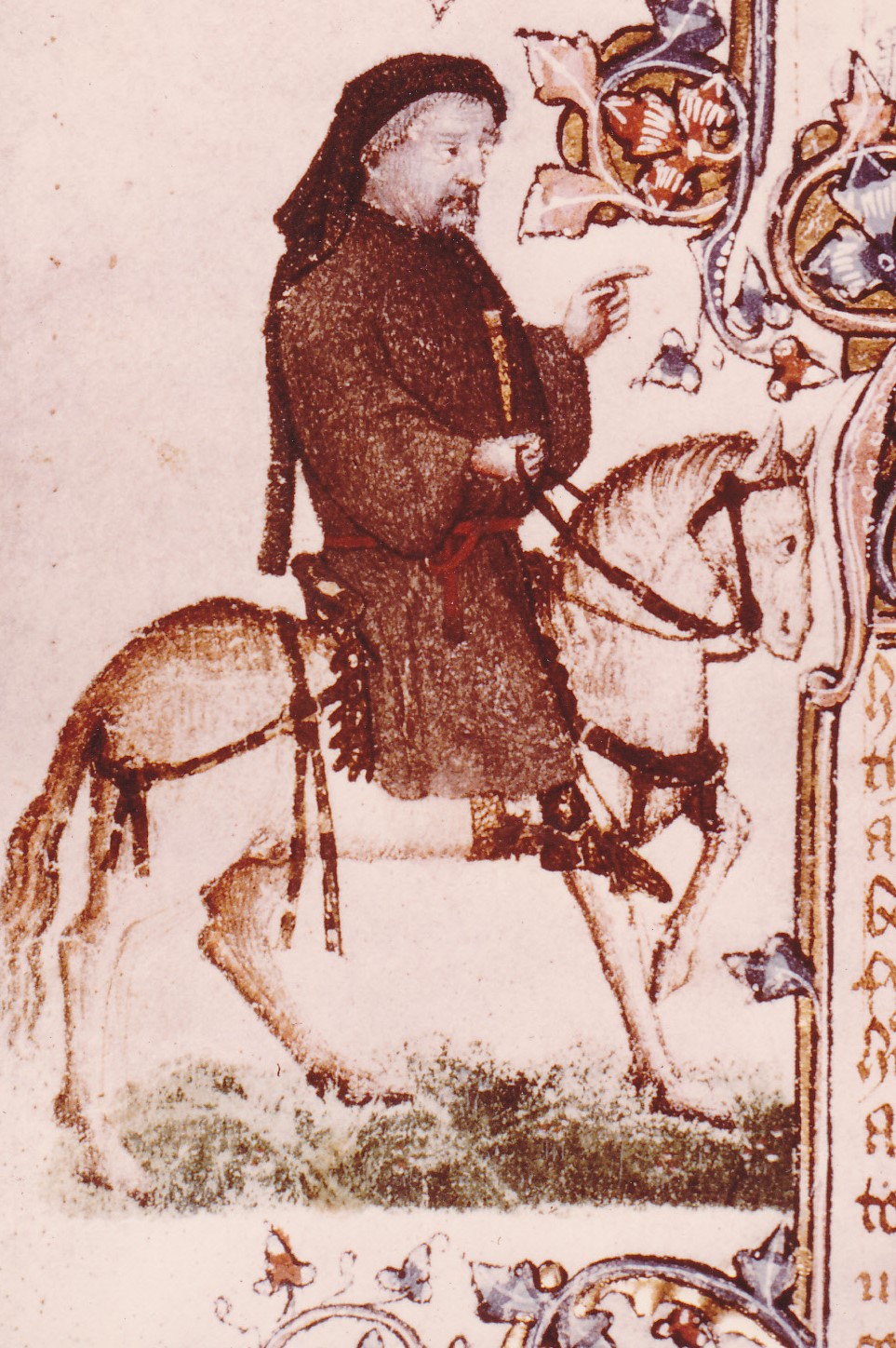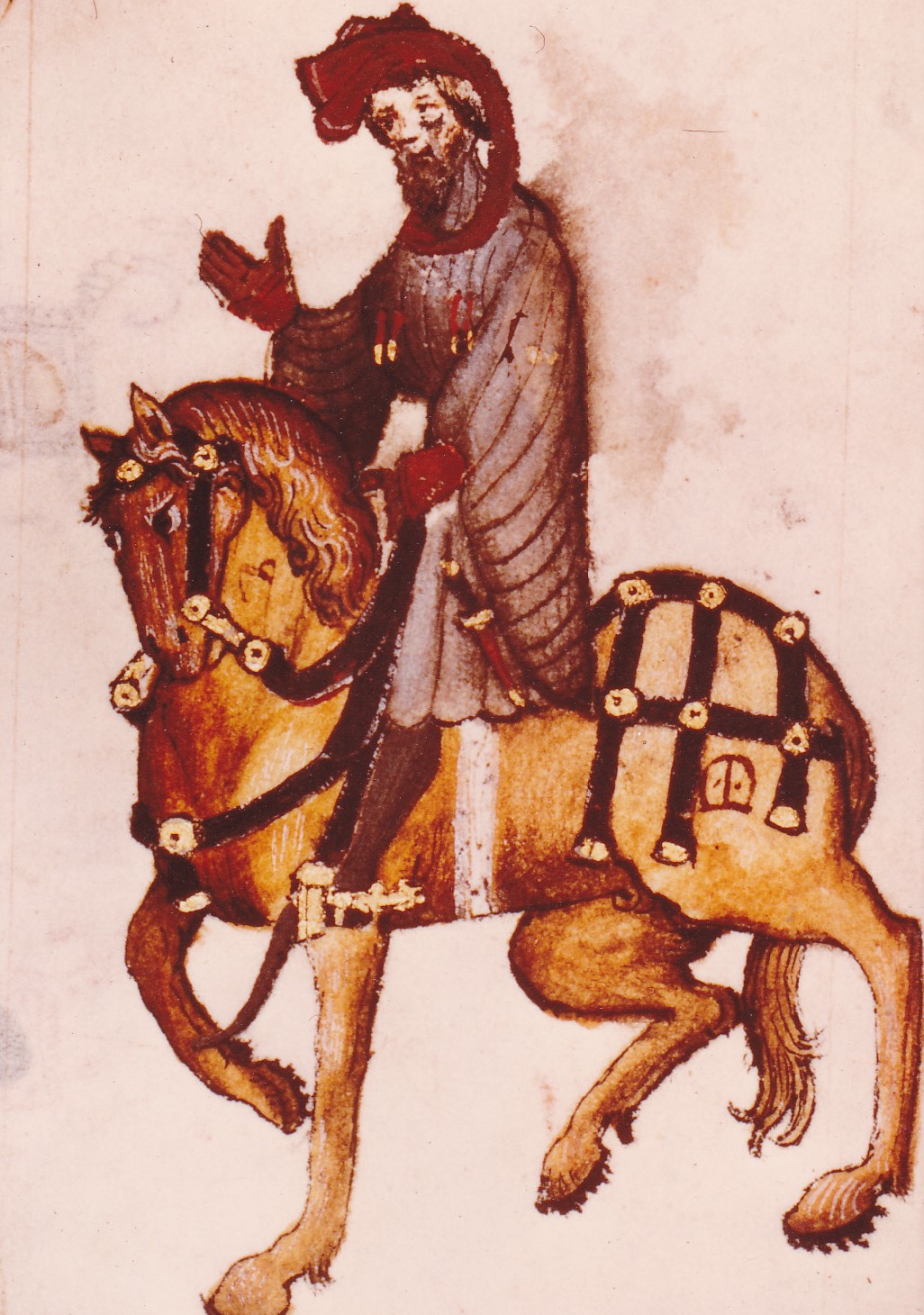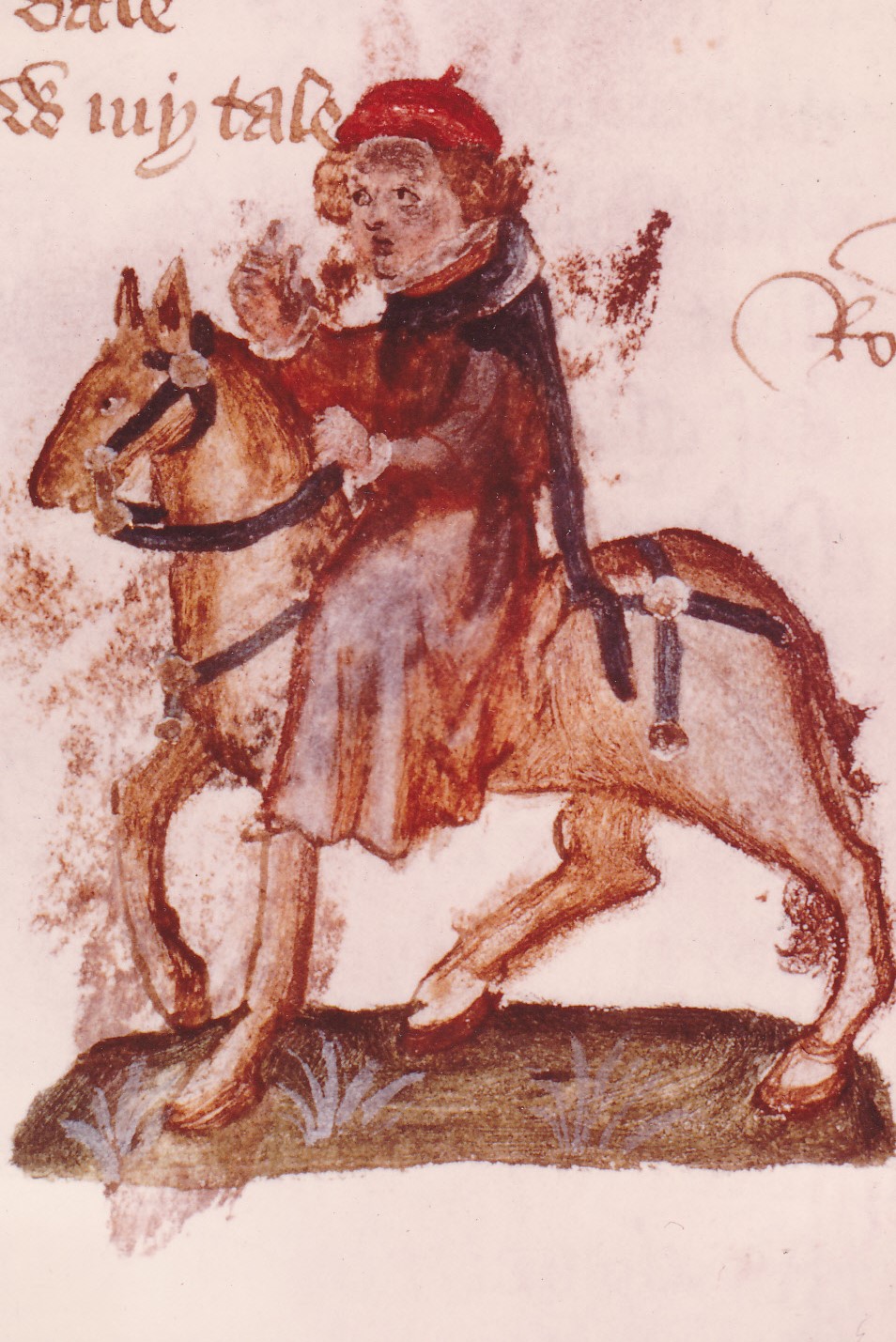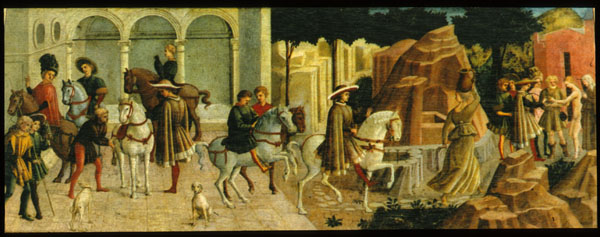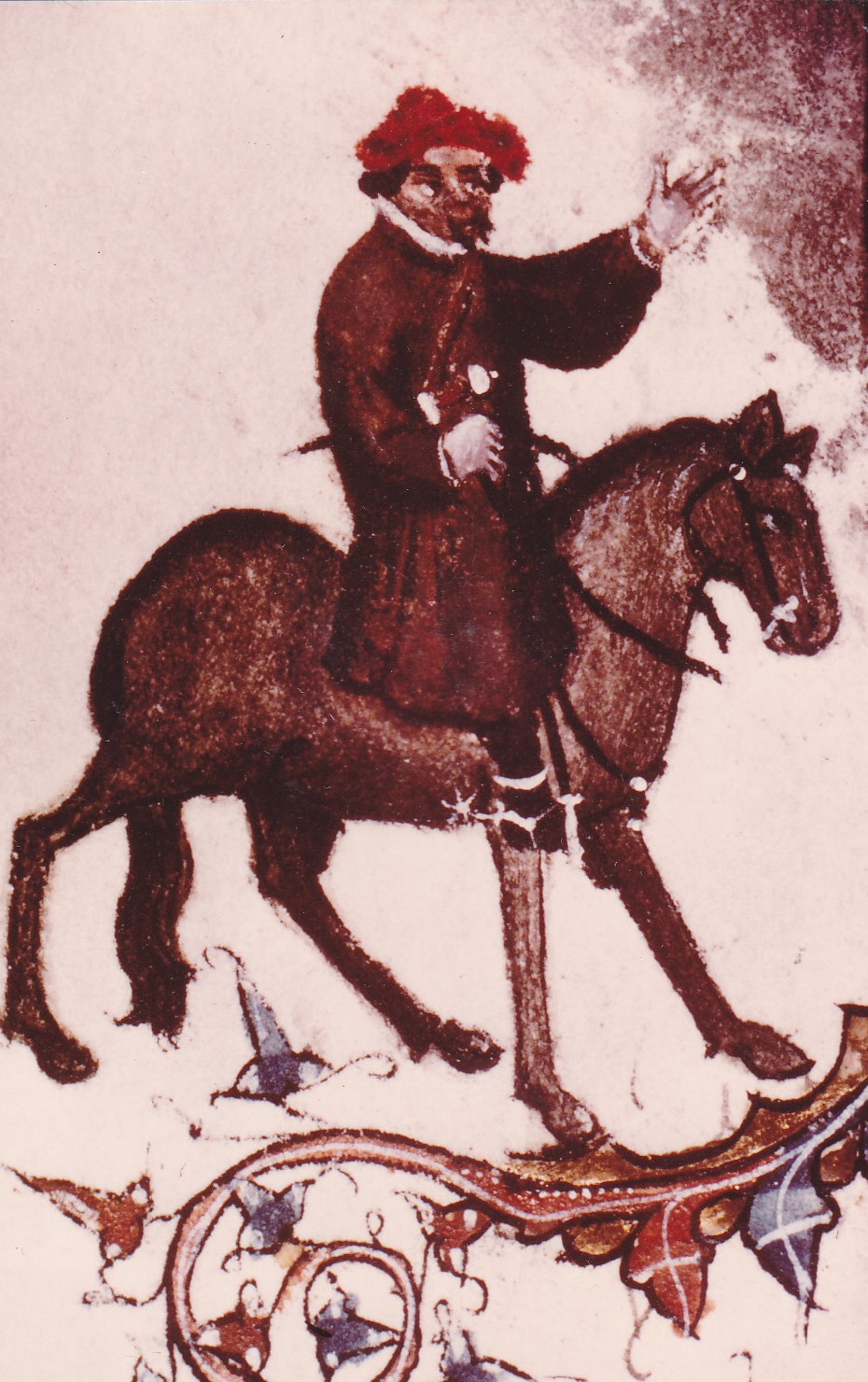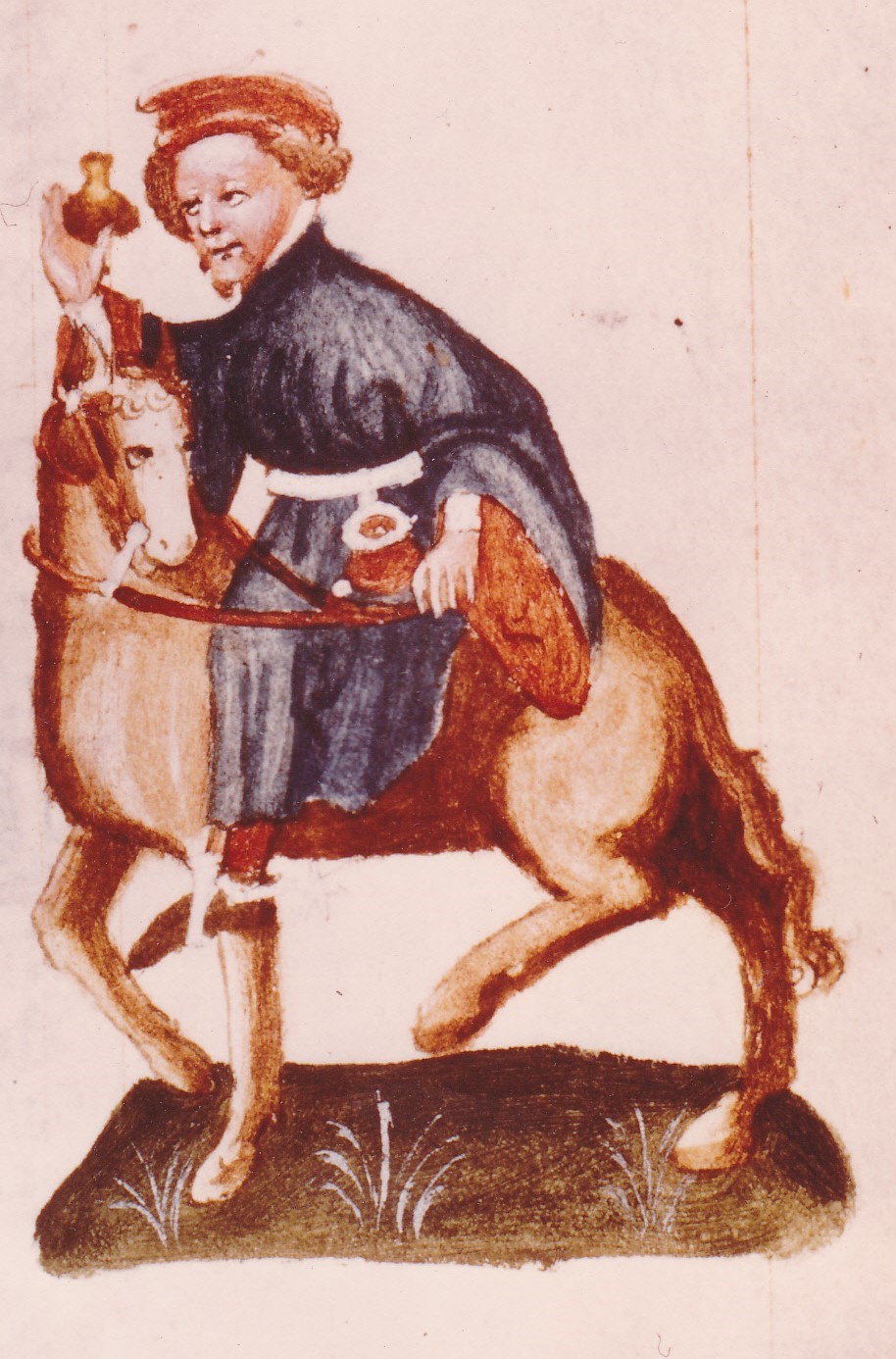1. ♫ CHAUCER
Click on red arrow for simultaneous sound track with text
Heere bygynneth the Book of the Tales of Caunterbury
han that aprill with his shoures soote
The droghte of march hath perced to the roote,
And bathed every veyne in swich licour
Of which vertu engendred is the flour;
Whan zephirus eek with his sweete breeth
Inspired hath in every holt and heethTendre croppes, and the yonge sonneHath in the ram his halve cours yronne,And smale foweles maken melodye,That slepen al the nyght with open ye(so priketh hem nature in hir corages);Thanne longen folk to goon on pilgrimages,And palmeres for to seken straunge strondes,To ferne halwes, kowthe in sondry londes;And specially from every shires endeOf engelond to caunterbury they wende,The hooly blisful martir for to seke,That hem hath holpen whan that they were seeke.Bifil that in that seson on a day,In southwerk at the tabard as I layRedy to wenden on my pilgrymageTo caunterbury with ful devout corage,At nyght was come into that hostelryeWel nyne and twenty in a compaignye,Of sondry folk, by aventure yfalleIn felaweshipe, and pilgrimes were they alle,That toward caunterbury wolden ryde.The chambres and the stables weren wyde,And wel we weren esed atte beste.And shortly, whan the sonne was to reste,So hadde I spoken with hem everichonThat I was of hir felaweshipe anon,And made forward erly for to ryse,To take oure wey ther as I yow devyse.But nathelees, whil I have tyme and space,Er that I ferther in this tale pace,
Me thynketh it acordaunt to resoun
To telle yow al the condicioun
Of ech of hem, so as it semed me,
And whiche they weren, and of what degree,
And eek in what array that they were inne;
And at a knyght than wol I first bigynne.
D.H. Lawrence said 'Trust not the teller, trust the tale'. Chaucer,
who is the consummate rhetorician, the consummate poet,
presents himself in the text as a naif pilgrim, a foolish persona -
as do Dante and Langland so that we may learn along with them
Gospel truths, rather than worldly criminality. He writes a
palinode that seems to celebrate that worldliness - with much
laughter. Pilgrims, for instance, invalidated their pilgrimage
if they rode on horseback or dressed in bright clothing or carried
weapons, only a staff being allowed in self defense. Then he turns
it inside out or the right way round, with the ideal Parson's Sermon
and his own palinode.
Medieval rhetoricians advised beginning poems, as Ovid, had with the
Creation of the World, thought to be on 25 March. The Canterbury Tales
is like the earlier motet, 'Sumer is i cumin in', balancing Natura naturans,
with Easter, blending profanity and sanctity:
♫ e.e. cummings captured the pilgrimage democracy of death and
click for motet's music
life in the Canterbury Tales:
honour corruption villainy holiness
riding in fragrance of sunlight (side by side
all in a singing wonder of blossoming yes
riding) to him who died that death should be dead
humblest and proudest eagerly wandering
(equally all alive in miraculous day)
merrily moving through sweet forgiveness of spring
(over the under the gift of the sky
knight and ploughman pardoner wife and nun
merchant frère clerk somnour miller and reve
and Geoffrey and all) come up from the never of when
come into the now of forever come riding alive
down while crylessly drifting through vast most
nothing’s own nothing children go of dust.
Chaucer creates this panorama of English social classes, fractalling
them into their Tales with multiplying voices, as M.M. Bakhtin
noted was true of Dosteivsky's novels, and which also play off
Boccaccio's and Chaucer's knowledge of Terence's Comedies,
performed in Rome's redlight district, Southwark's Tabard Inn
being in London's similar redlight district.
http://www.umilta.net/terencechaucer.html
Thus the General Prologue not only echoes Wyclif's Gospel in
Middle English, it also serves as the rack of masks for a Terentian
play, and as a rather deliberately chaotic Table of Contents to The
Canterbury Tales.
The Man of Law's Prologue specifically date the pilgrimage as taking
place on the 18th of April. Throughout the astrolage is used for times,
dates and seasons. See TretisseAstrolabe.
When Chaucer comes eventually to tell his Tale it will be such
doggerel that he is shut up by the other pilgrims and made to
tell one better. He then narrates a very moral and boring allegory
of Melibee and Prudence whose daughter has been raped
and killed. His alter ego is the Tabard Inn's Host who fictionally
preempts Chaucer's role as Master of Ceremonies, thus temporarily
absolving Geoffrey of moral responsibility for the Tales. But wait
until his Retraction!
Schema, Canterbury Tales

